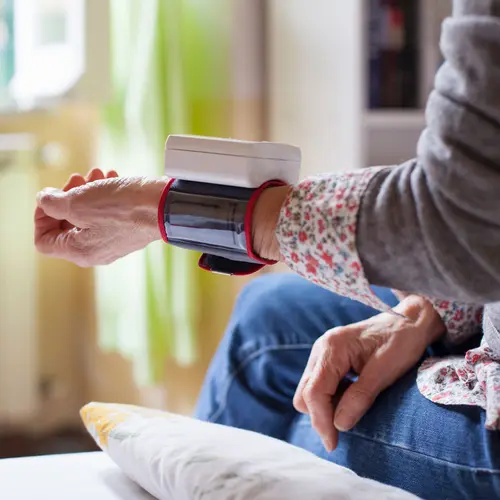When you have a stroke, your brain isn't getting the blood it needs. You need treatment right away to lower your chances of brain damage, disability, or even death.
Use the FAST test to check for the most common symptoms of a stroke in yourself or someone else.
Face: Smile and see if one side of the face droops.
Arms: Raise both arms. Does one arm drop down?
Speech: Say a short phrase and check for slurred or strange speech.
Time: If the answer to any of these is yes, call 911 right away and write down the time when symptoms started.
Minutes matter in treating stroke. Calling a doctor or driving to the hospital yourself wastes time. Ambulance workers can judge your situation sooner, and that boosts your chance of getting the treatment you need as soon as possible.
Depending on the type of stroke, doctors may give you aspirin or powerful clot-busting drugs. The treatment works best when you get this medication within 3 hours of when your symptoms started. If your stroke was caused by a burst blood vessel, doctors will try to stop the bleeding as soon as possible.
Warning Signs
Sometimes a stroke happens gradually, but you're likely to have one or more sudden symptoms like these:
- Numbness or weakness in your face, arm, or leg, especially on one side
- Confusion or trouble understanding other people
- Difficulty speaking
- Trouble seeing with one or both eyes
- Problems walking or staying balanced or coordinated
- Dizziness
- Severe headache that comes on for no reason
If you have these symptoms, call 911 even if you're not sure you're having a stroke.
Be Prepared
Each year, about 795,000 people in the U.S. have a stroke. They can happen to anyone at any time. Planning for an emergency can make a big difference.
- Learn the warning signs of a stroke and let your family and friends know, too.
- If you have any medical conditions, wear a medical bracelet or other identification that lists them, your allergies, and any medication you take.
- Teach your children the FAST test, plus how to call 911, give your address, and describe what's happening.

